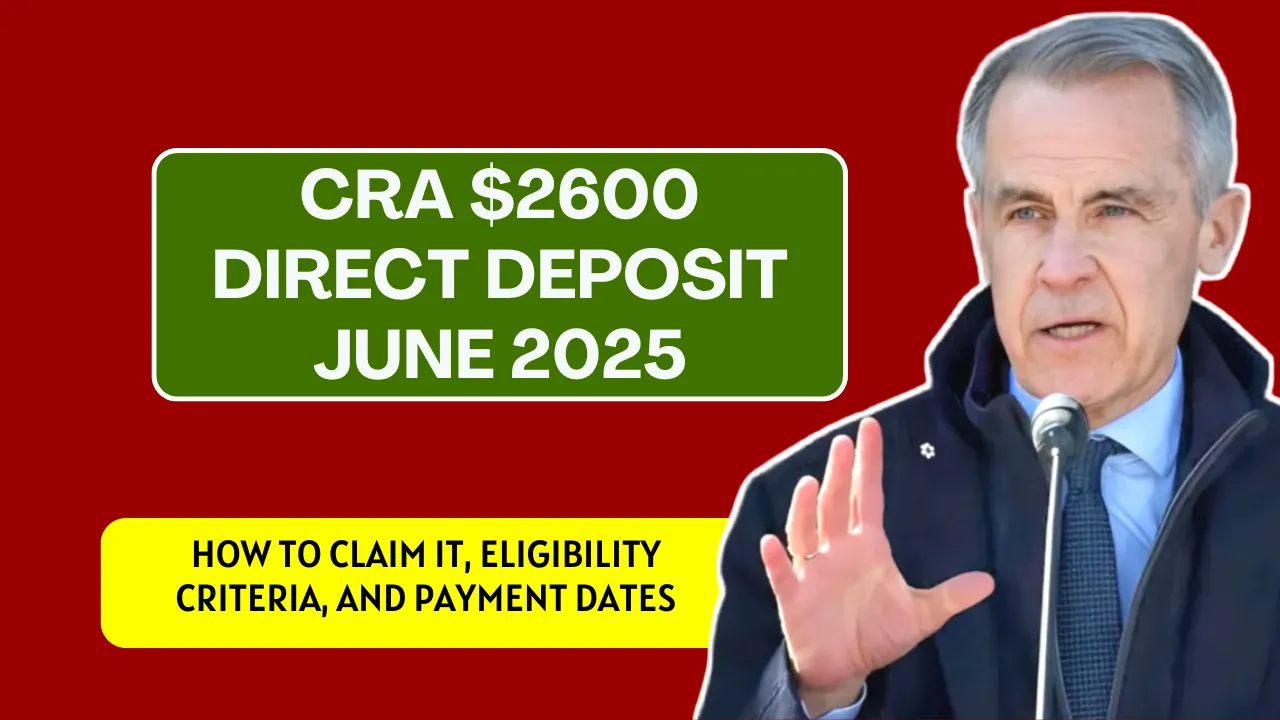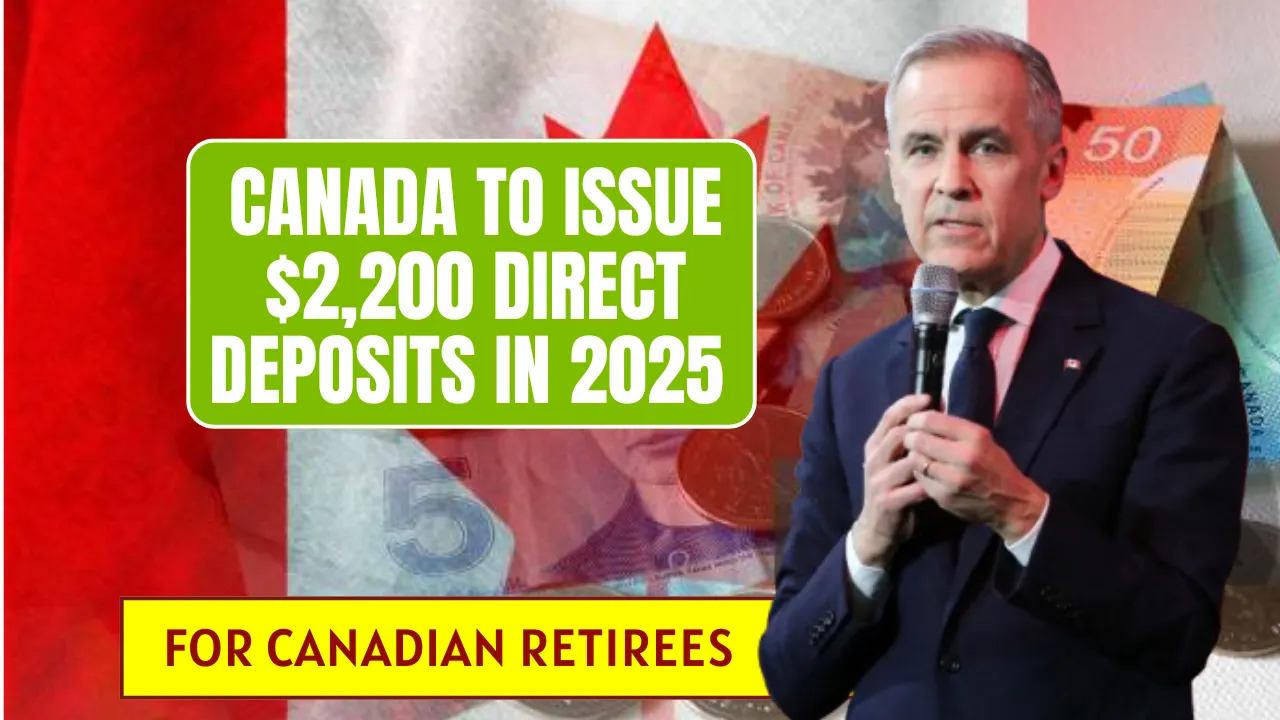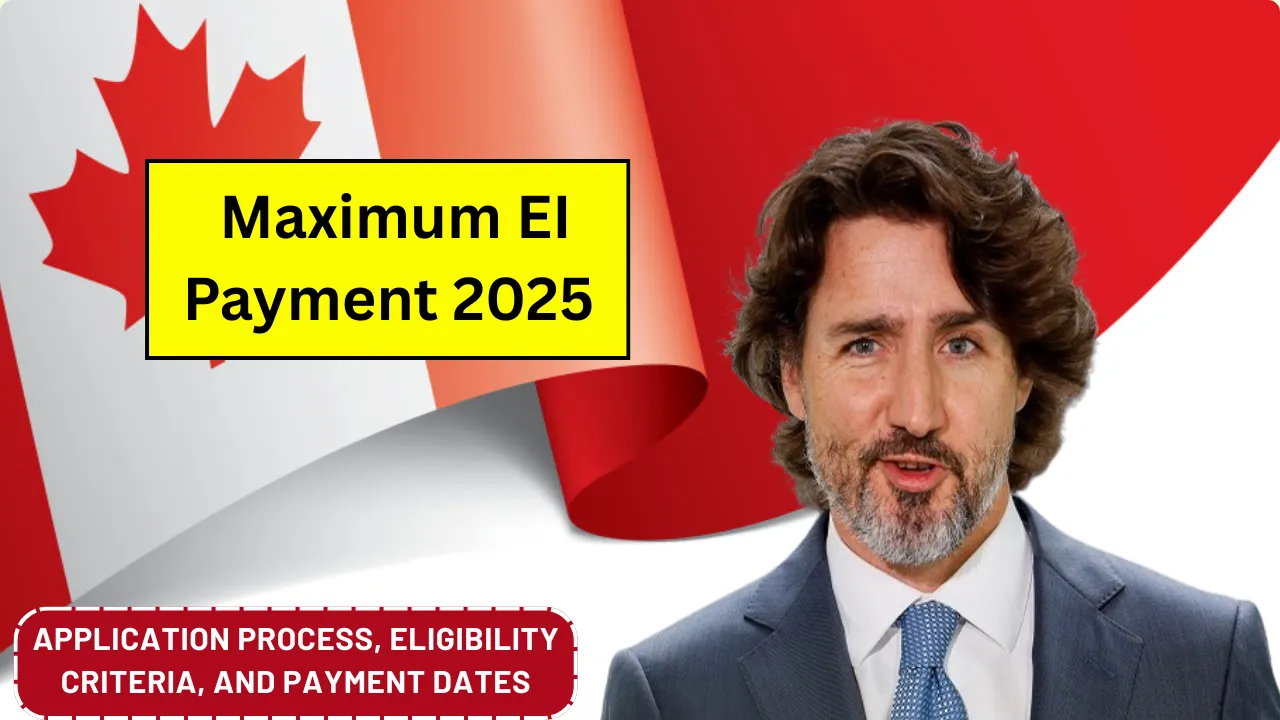$7,500 Canada tax credit June 2025: In June 2025, two major federal support programs launched to assist Canadian homeowners, seniors, and individuals with disabilities. These initiatives offer essential financial help—one through a significant tax credit for home renovations and another through a monthly benefit for qualifying individuals with disabilities.
The $7,500 Canada tax credit June 2025 refers specifically to the Multigenerational Home Renovation Tax Credit (MHRTC). This refund can reach up to $7,500 for homeowners creating accessible living spaces for seniors or adults with disabilities. The same month also marks the rollout of the Canada Disability Benefit, bringing much-needed monthly support to eligible Canadians.
$7,500 Canada tax credit June 2025
To showcase the essential details of both new programs, here is a concise overview:
| Program | Target Group | Amount | How to Claim |
| Multigenerational Home Renovation Tax Credit (MHRTC) | Homeowners adding accessible suites for a senior (65+) or an adult with DTC | Up to $7,500 (15% of max $50,000) | On 2025 tax return, Schedule 12, line 45355 |
| Canada Disability Benefit (CDB) | Adults aged 18–64 with valid Disability Tax Credit | Up to $200/month | Apply via CRA My Account, June 20–Dec 31, 2025 |
Why These Programs Matter
Both the MHRTC and CDB aim to strengthen family-based care and improve independence. With an aging population and growing demand for accessible housing, the tax credit helps cover renovation costs. The Canada Disability Benefit offers consistent monthly support to working-age adults with disabilities.
MHRTC (Multigenerational Home Renovation Tax Credit)
The MHRTC is a one-time refundable credit, covering 15% of renovation costs up to $50,000—totaling a maximum of $7,500. Eligible renovations must create a separate living space with its own kitchen, bathroom, sleeping, and entrance, for either a senior or a DTC-certified adult.
Key Eligibility Requirements
- The suite must be self-contained and dedicated to a qualifying person.
- Renovations must be completed in 2025, with proper permits.
- Only one claim allowed per qualifying person, per lifetime.
Required Documents
- Receipts listing contractor names, services, dates, and payments
- Building permits and compliance documents
- Photos taken before, during, and after the renovation
- Confirmation of the occupant’s Disability Tax Credit (if applicable)
How to Claim
When filing your 2025 taxes, complete Schedule 12 and report the eligible renovation costs on line 45355. Maintain all documentation for at least six years in case of CRA review.
Provincial Programs
Beyond federal offerings, many provinces provide complementary tax credits and grants:
- British Columbia: Home Renovation Credit for Seniors and Persons with Disabilities—10% of eligible costs up to $10,000 (max $1,000).
- Quebec: Tax credits for home adaptations and renovations.
- Ontario: Accessibility grants and Seniors’ Public Transit Tax Credit.
Check your province’s tax authority for additional details and eligibility rules.
Canada Disability Benefit (CDB)
The Canada Disability Benefit delivers monthly payments to adults aged 18–64 holding a valid Disability Tax Credit. Funds begin in July 2025 for those approved before June 30, 2025, with retroactive payments potentially backdated to June 2025—even if you turn 65 during the year.
Eligibility Criteria
- Canadian resident aged between 18 and 64
- Approved for the Disability Tax Credit
- File your 2024 tax return
Income Testing
The CDB income threshold is tiered:
- Singles: First $23,000 exempt
- Couples: First $32,500 exempt
- Working income exclusion: $10,000 (or $14,000 for couples)
- Benefit reduces by 20% of income above the exemption.
Example
Dan earns $35,000 annually and is DTC-certified.
Subtract $10,000 (working income), then the $23,000 exemption leaves $2,000 taxed at 20%—resulting in a $2,000 annual benefit ($166.67/month).
How to Apply
- File your 2024 tax return.
- The CRA issues an application code.
- From June 20 to December 31, 2025, apply via CRA My Account or Service Canada.
- Submit SIN and banking details to begin receiving monthly payments.
Step‑by‑Step Action Plan
- Download Form T2201 and ask a medical practitioner to complete Part B.
- Plan renovations by hiring experienced contractors, collecting three quotes, and budgeting for permits and fees.
- Start renovations early in 2025 and document the process with receipts and photos.
- Track expenses via a ledger or finance app, and keep records of all documentation.
- File with Schedule 12, including all supporting documents and expenses.
- Monitor for your MHRTC refund in early 2026, and for CDB payments starting in July 2025.
Financing Tips
If funding renovation costs is a concern, consider:
- Drawing from home equity through specialized loans
- Exploring accessibility-focused financing programs
- Consulting a tax professional to combine MHRTC with credits like the Home Accessibility Tax Credit, Canada Caregiver Credit, or medical deductions
FAQs
Who qualifies for the $7,500 MHRTC?
Homeowners renovating a suite for a senior or DTC-approved individual.
How do I claim the MIHRTC?
Use Schedule 12 on your 2025 tax return (line 45355), with all documentation ready.
When do CDB payments begin?
Monthly payments start in July 2025 for approved applicants.
How much is the Canada Disability Benefit?
Up to $200 per month, subject to income testing.
Can I combine this with provincial credits?
Yes—many provinces offer additional accessibility credits, which may be combined.
Final Thought
The arrival of the $7,500 Canada tax credit June 2025 brings a unique opportunity for homeowners and caregivers. By creating accessible living spaces and tapping into federal and provincial benefits, families and individuals with disabilities can improve their quality of life. Meanwhile, the Canada Disability Benefit provides steady support to working-age adults with disabilities. Together, these programs represent meaningful support—and with careful planning and documentation, you can maximize the benefits available to you.
Have you applied or completed renovations under these new programs? Share your experience below, and tag someone who might benefit. Don’t forget to check out provincial resources and explore additional credits and deductions that could further ease your financial journey.












